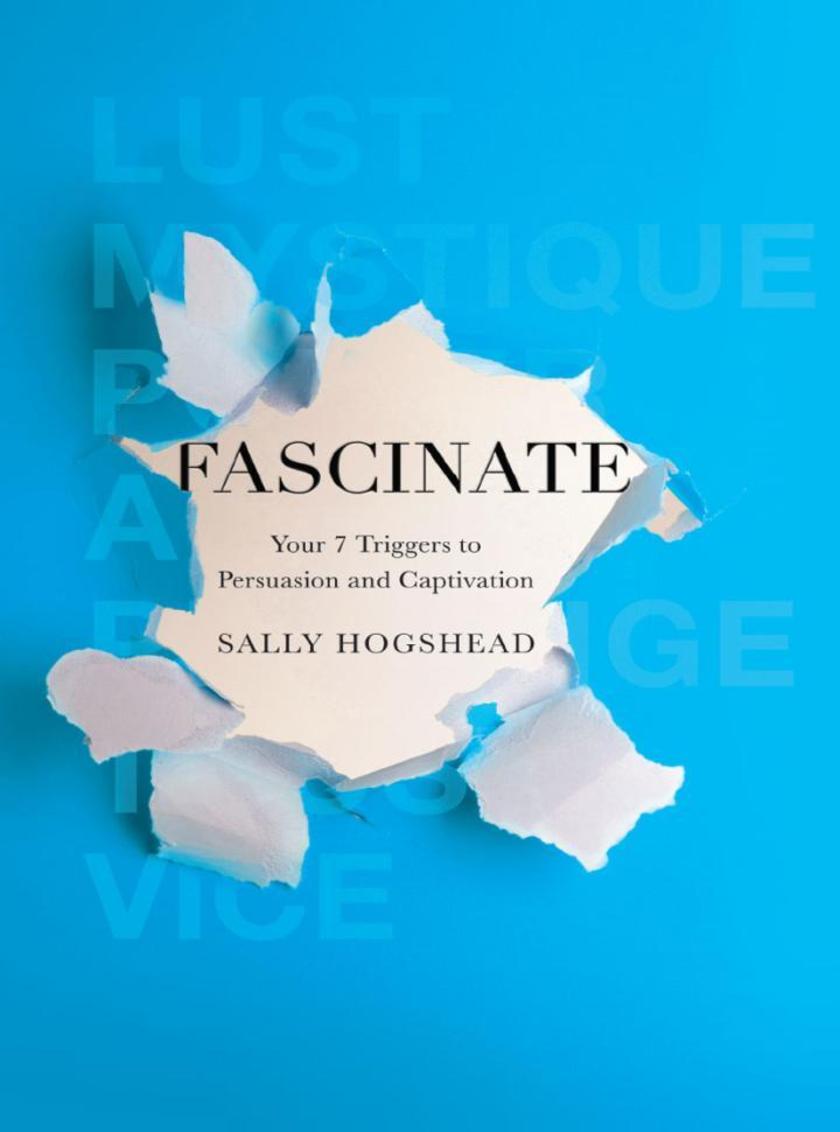
Fascinate
¥151.10
What triggers fascination, and how do companies, people, and ideas put those triggers to useWhy are you captivated by some people but not by othersWhy do you recall some brands yet forget the restIn a distracted, overcrowded world, how do certain leaders, friends, and family members convince you to change your behaviorFascination: the most powerful way to influence decision making. It's more persuasive than marketing, advertising, or any other form of communication. And it all starts with seven universal triggers: lust, mystique, alarm, prestige, power, vice, and trust. Fascination plays a role in every type of decision making, from the brands you choose to the songs you remember, from the person you marry to the employees you hire. And by activating the right triggers, you can make anything become fascinating.To explore and explain fascination's irresistible influence, Sally Hogshead looks beyond marketing, delving into behavioral and social studies, historical precedents, neurobiology and evolutionary anthropology, as well as conducting in-depth interviews and a national study of a thousand consumers, to emerge with deeply rooted patterns for why, and how, we become captivated.Hogshead reveals why the Salem witch trials began with the same fixations as those in Sex and the City. How Olympic athletes are subject to obsessions similar to those of fetishists. How a 1636 frenzy over Dutch tulip bulbs perfectly mirrors the 2006 real estate bubble. And why a billion-dollar "Just Say No" program actually increased drug use among teens, by activating the same "forbidden fruit" syndrome as a Victoria's Secret catalog.Whether you realize it or not, you're already using the seven triggers. The question is, are you using the right triggers, in the right way, to get your desired resultThis book will show you.
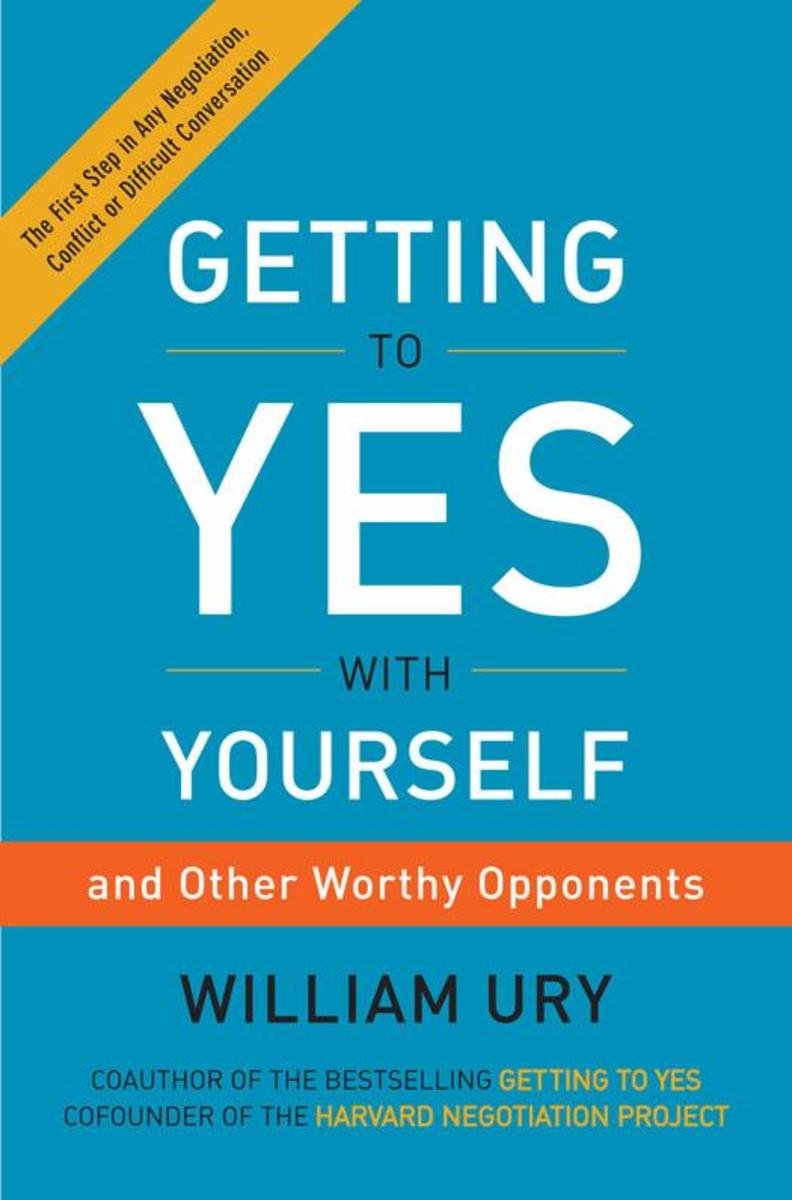
Getting to Yes with Yourself
¥151.10
William Ury, coauthor of the classic bestseller on negotiation Getting to Yes, has taught tens of thousands of people from all walks of life managers, salespeople, students, parents, lawyers, and diplomats how to become better negotiators. Over the years, Ury has discovered that the greatest obstacle to successful agreements and satisfying relationships is not the other side, as difficult as they can be. The biggest obstacle is actually ourselves our natural tendency to react in ways that do not serve our true interests.But this obstacle can also become our biggest opportunity, Ury argues. If we learn to understand and influence ourselves first, we lay the groundwork for understanding and influencing others. In this indispensable prequel to Getting to Yes, Ury draws deeply on his personal and professional experience negotiating conflicts around the world to present a practical method to help you get to yes with yourself first, dra-matically improving your ability to get to yes with others. Extraordinarily useful and elegantly simple, Getting to Yes with Yourself is an essential guide to achieving the inner satisfaction that will, in turn, make your life better, your relationships healthier, your family happier, your work more productive, and the world around you more peaceful.
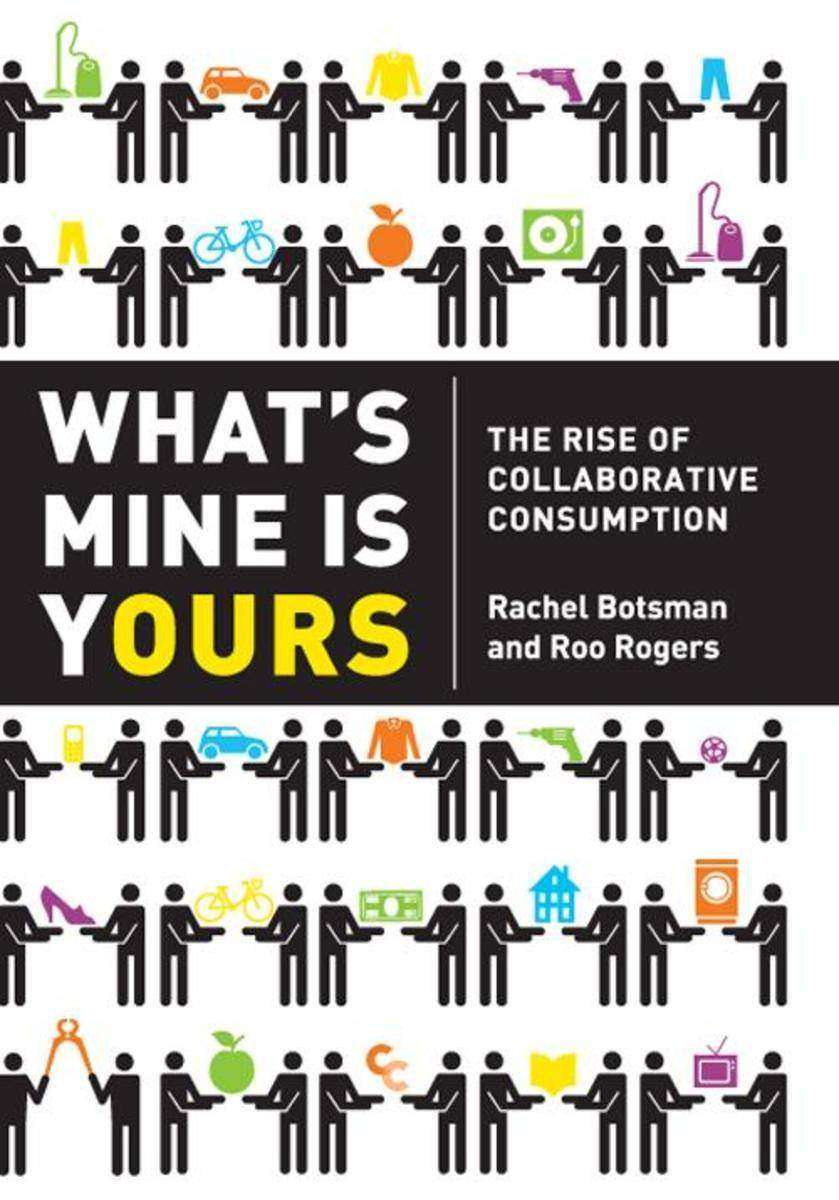
What's Mine Is Yours
¥151.10
WHAT'S MINE IS YOURS is about Collaborative Consumption, a new, emerging economy made possible by online social networks and fueled by increasing cost consciousness and environmental necessity. Collaborative Consumption occurs when people participate in organized sharing, bartering, trading, renting, swapping, and collectives to get the same pleasures of ownership with reduced personal cost and burden, and lower environmental impact. The book addresses three growing models of Collaborative Consumption: Product Service Systems, Communal Economies, and Redistribution Markets. The first, Product Service Systems, reflects the increasing number of people from all different backgrounds and across ages who are buying into the idea of using the service of the product-what it does for them-without owning it. Examples include Zipcar and Ziploc, and these companies are disrupting traditional industries based on models of individual ownership. Second, in what the authors define as Communal Economies, there is a growing realization that as individual consumers, we have relatively little in the way of bargaining power with corporations. A crowd of consumers, however, introduces a different, empowering dynamic. Online networks are bringing people together again and making them more willing to leverage the proverbial power of numbers. Examples of this second category include Etsy, an online market for handcrafts, or the social lending marketplace Zopa. The third model is Redistribution Markets, exemplified by worldwide networks such as Freecycle and Ebay as well as emerging forms of modern day bartering and swap trading such as Zwaggle, Swaptree, and Zunafish. Social networks facilitate consumer-to-consumer marketplaces that redistribute goods from where they are not needed to somewhere or someone where they are. This business model encourages reusing/reselling of old items rather them throwing them out, thereby reducing the waste and carbon emissions that go along with new production.WHAT'S MINE IS YOURS describes how these three models come together to form a new economy of more sustainable consumerism. Collaborative Consumption started as a trend in conjunction with the emergence of shared collective content/information sites such as Wikipedia and Flickr and with the recent economic troubles and increasing environmental awareness, it is growing into an international movement. The authors predict it will be a fully fledged economy within the next five years.In this book the authors travel among the quiet revolutionaries (consumers and companies) from all around the world. They explore how businesses will both prosper and fail in this environment, and, in particular, they examine how it has the potential to help create the mass sustainable change in consumer behaviors this planet so desperately needs. The authors themselves are environmentalists, but they are also entrepreneurs, parents, and optimistic citizens. This is a good news book about long-term positive change.

Smartcuts
¥149.48
Serial entrepreneur and journalist Shane Snow delves into the reasons why some people and some organizations are able to achieve incredible things in implausibly short time frames, showing how each of us can use these "smartcuts" to rethink convention and accelerate success.Why do some companies attract millions of customers in mere months while others flopHow did Alexander the Great, YouTube phenom Michelle Phan, and Tonight Show host Jimmy Fallon dash to the top in less time than it takes most of us to get a midlevel promotionHow do high-growth businesses, world-class heart surgeons, and underdog marketers beat the norm?Like computer hackers, a handful of innovators in every era use lateral thinking to find better routes to stunning accomplishments. Throughout history, the world's biggest successes have been achieved by those who refuse to follow the expected course and buck the norm.Smartcuts is about bucking the norm. In it, Snow shatters common wisdom about success, revealing how conventions like "paying dues" prevent progress, why kids shouldn't learn multiplication tables, and how, paradoxically, it's easier to build a huge business than a small one.Smartcuts tells the stories of innovators who dared to work differently and lays out practical takeaways for the rest of us. It's about applying entrepreneurial and technological concepts to success, and how, by emulation, we too can leapfrog competitors, grow businesses, and fix society's problems faster than we think.
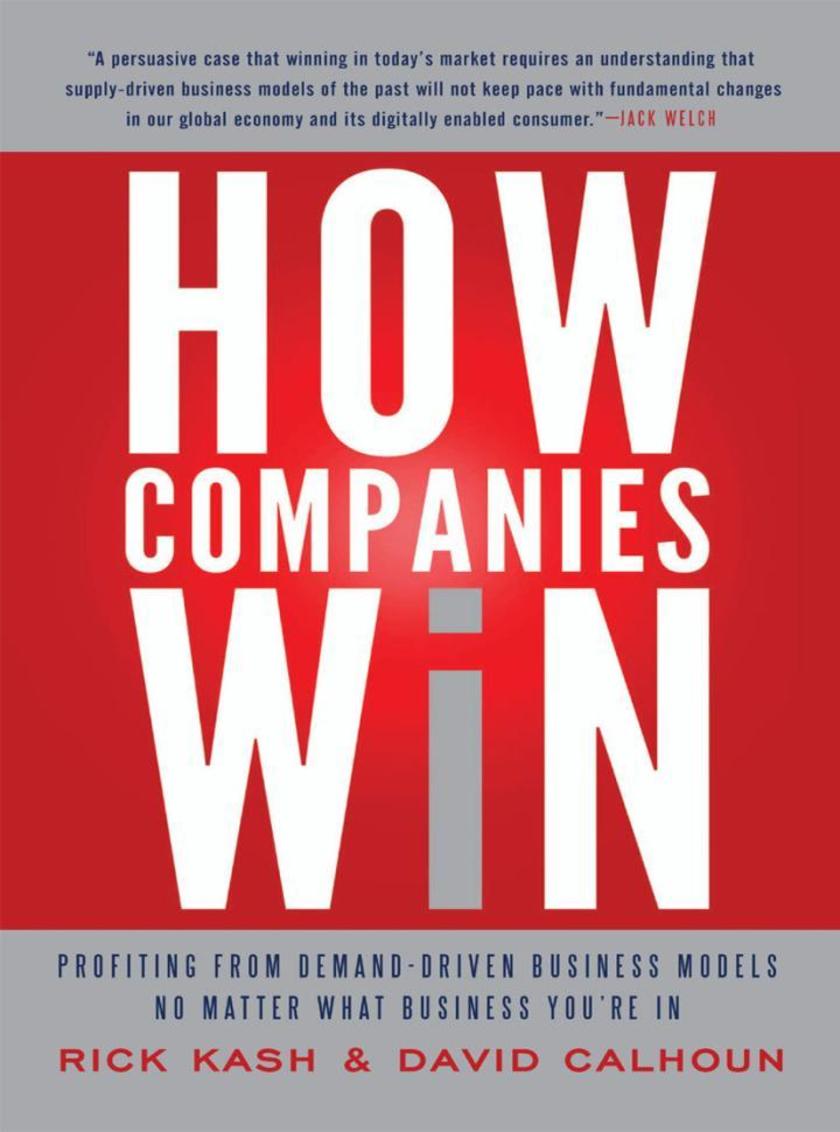
How Companies Win
¥149.48
For the past twenty years, the growth formula for business has been to increase revenues by expanding product offerings and streamlining supply. But with the recent global recession, the world economy has changed forever. Now the old tools most notably supply-chain management are no longer enough. In a new digital age characterized by over-supply and too many product types in almost every market, the new challenge is to locate and capture the elusive pools of high-profit demand.Rick Kash and David Calhoun have the answer: a revolutionary, demand-driven model that has already proved successful for some of the world's most admired companies, including Best Buy, Anheuser-Busch, Hershey's, and Allstate. At the heart of this powerful new business model is an achievable vision for a new kind of winning company, one that uses sophisticated new tools and techniques to discover, characterize, and then serve these pools of high-profit demand and in the process gain pricing power in that market. Kash and Calhoun show how to use everything from social networks to more revealing and effective consumer-research techniques and then introduce the demand chain, the logical new partner to your supply chain. The authors' principles, case histories, and insights will help your business run faster, cut costs, and become better able to deliver high-quality products and services, even in the tightest economic climate.How Companies Win is a compelling call to action to engage every level within a company, small or large, local or global.
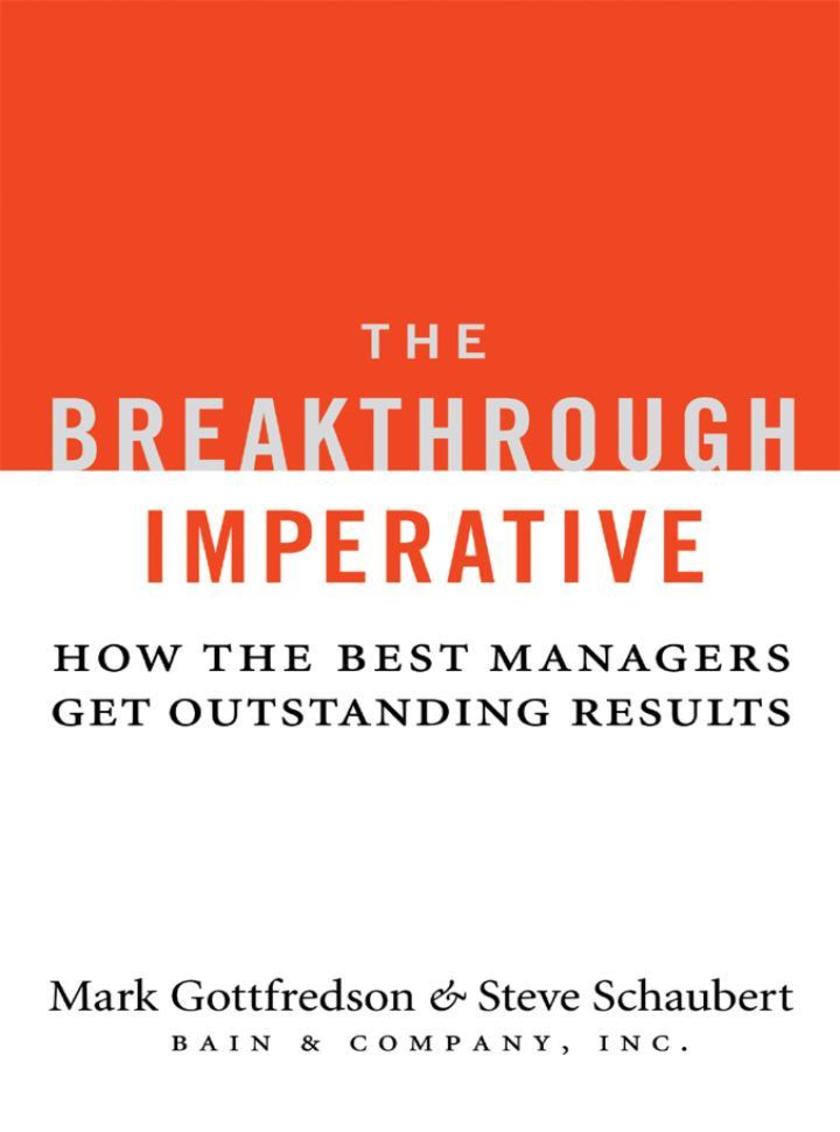
The Breakthrough Imperative
¥149.26
Every general manager today all the way up to the CEO is expected by his or her stakeholders to achieve new breakthroughs in performance and fast. Those who don't make visible progress toward that goal within the first year or two will likely find themselves looking for another job. It is precisely because of this growing breakthrough imperative that managers today, whether in corporations or nonprofits, need to get off to a fast start. They don't have time for mistakes or for going back and redoing what they should have done right in the first place. But, despite the intensity of these pressures, despite the high expectations and short time frames, a number of CEOs and general managers turn in truly exceptional results. How do they meet and exceed the breakthrough imperativeTo answer this question, consultants and former managers Mark Gottfredson and Steve Schaubert interviewed more than forty CEOs from both industry and the nonprofit sector, conducted an intensive study of what successful managers do right and what some do wrong and drew on their own combined fifty-plus years of experience at Bain & Company, where their insights have consistently been found in the pages of the Harvard Business Review. Together they came up with the four straightforward principles deceptively simple yet remarkably powerful that everyone must follow to succeed at achieving breakthrough results: 1. Costs and prices always decline2. Competitive position determines options3. Customers and profit pools don't stand still4. Simplicity gets results Although seemingly simplistic, mastering these four laws means mastering the basics of great management a foundation on which to build the rest of one's management strategy. Whether you're managing a small work group or a multinational corporation, a single division or an entire nonprofit, The Breakthrough Imperative presents these core laws of business to help you determine where you are, just how far you can go, and how to get there with stellar results.

HarperCollins e-books
¥145.97
The commercial and cultural explosion of the digital age may have been born in California's Silicon Valley, but it reached its high point of riotous, chaotic exuberance in New York City from 1995 to 2000 in the golden age of Silicon Alley. In that short stretch of time a generation of talented, untested twentysomethings deluged the city, launching thousands of new Internet ventures and attracting billions of dollars in investment capital. Many of these young entrepreneurs were entranced by the infinite promise of the new media; others seemed more captivated by the promise of infinite profits. The innovations they launched from online advertising to 24-hour Webcasting propelled both the Internet and the tech-stock boom of the late '90s. And in doing so they sent the city around them into a maelstrom of brainstorming, code-writing, fundraising, drugs, sex, and frenzied hype . . .until April 2000, when the NASDAQ zeppelin finally burst and fell at their feet. In the pages of Digital Hustlers, Alley insiders Casey Kait and Stephen Weiss have captured the excitement and excesses of this remarkable moment in time. Weaving together the voices of more than fifty of the industry's leading characters, this extraordinary oral history offers a ground-zero look at the birth of a new medium. Here are entrepreneurs like Kevin O'Connor of DoubleClick, Fernando Espuelas of StarMedia, and Craig Kanarick of Razorfish; commentators like Omar Wasow of MSNBC and Jason McCabe Calacanis of the Silicon Alley Reporter; and inimitable Alley characters like party diva Courtney Pulitzer and Josh Harris, the clown prince of Pseudo.com. Together they describe a world of sweatshop programmers and paper millionaires, of cocktail-napkin business plans and billion-dollar IPOs, of spectacular successes and flame-outs alike. Candid and open-eyed, bristling with energy and argument, Digital Hustlers is an unforgettable group portrait of a wildly creative culture caught in the headlights of achievement.
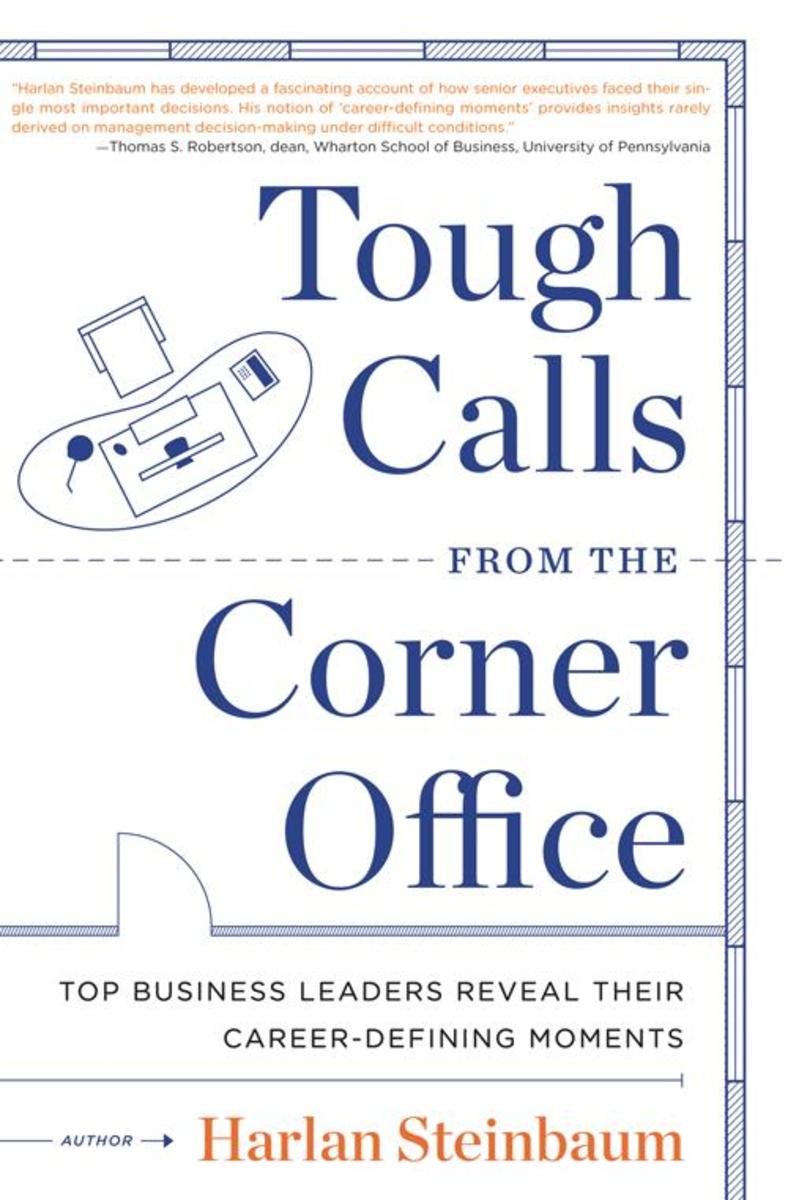
Tough Calls from the Corner Office
¥145.91
Thirty-nine of America's most successful business leaders share the most important decisions of their careers and the life and career lessons they hold for us all. When former CEO Harlan Steinbaum decided to buy back his retail drug chain with his partners, his life changed dramatically. The personal impact that this one business decision this "tough call" had on Steinbaum made him wonder if others had experienced similar kinds of defining moments in their own careers. To find out, he reached out to some of the most successful people in the country leaders from companies such as Verizon, Chrysler, ESPN, Ogilvy & Mather, Enterprise Rent-A-Car, WellPoint, and Panera Bread Company to pinpoint the career-defining decisions that were integral to their success. The result is Tough Calls from the Corner Office, a treasure trove of rich business wisdom, stories of tough decisions and hard-won victories, and lessons from a lifetime of achievement in the world of business.Tough Calls from the Corner Office offers inspiring stories, lessons, principles, strategies, ideas, and solutions drawn from every stage in a successful career, from early key choices to the final leave-taking from the world of work. Given unprecedented access to such visionaries as Union Square Hospitality Group's Danny Meyer, ESPN's Bill Rasmussen, Build-A-Bear's Maxine Clark, and Let's Make a Deal's Monty Hall, Steinbaum shares their experiences, told in their own words, so that others may learn from them. In a time when many people are at professional crossroads, Tough Calls from the Corner Office offers inspiration and the confidence to believe that tough decisions can be the first step to extraordinary success.
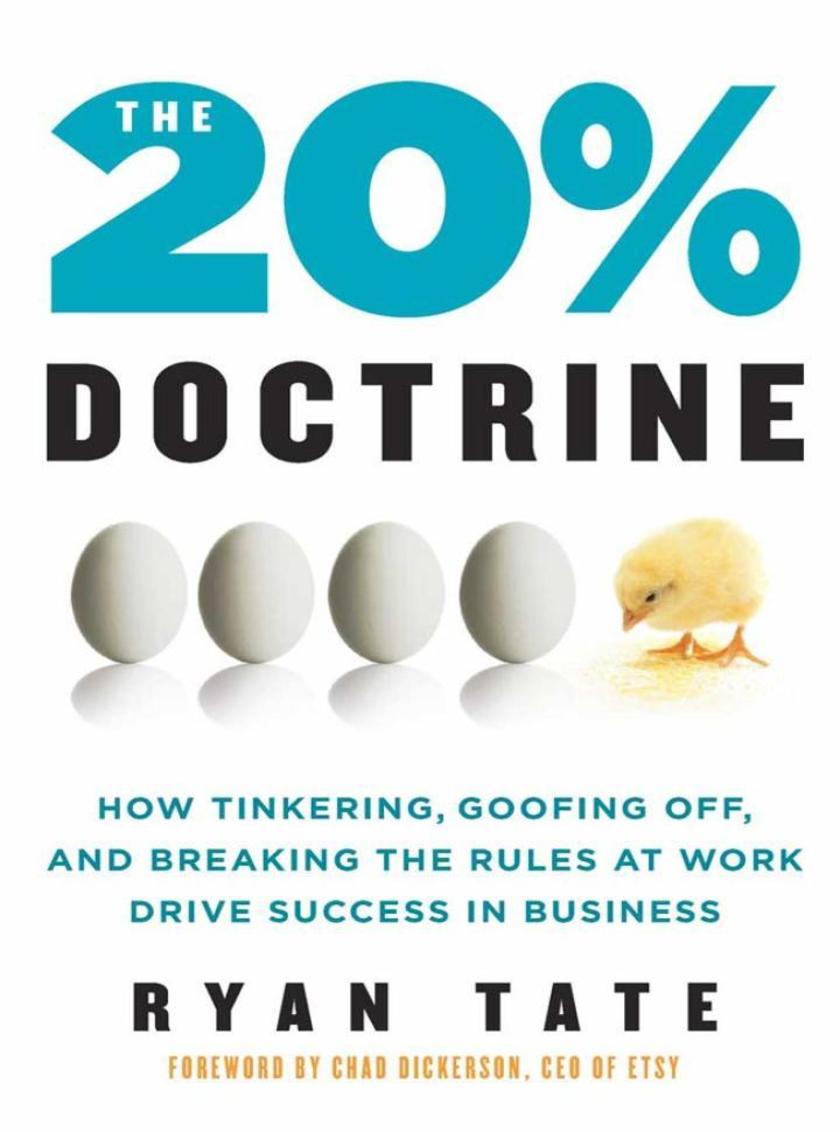
The 20% Doctrine
¥145.91
An inspiring exploration of how unorthodox business practices and the freedom to experiment can fuel innovationWe're at a crossroads. Many iconic American companies have been bailed out or gone bankrupt; others are struggling to survive as digitization and globalization remake their industries. At the same time, the tectonic forces disrupting U.S. corporations ubiquitous bandwidth and computing power, cheap manufacturing and distribution have enabled large organizations to foster new innovations and products through experiments that are at once more aggressive and less risky than they would have been twenty years ago. At companies such as Google, employees are encouraged to spend 20% of their work time on projects they're personally interested in. Almost half of Google's new product launches have originated from this policy, including Gmail and AdSense. Now other companies have adopted the concept, providing them a path to innovation and profits at a time of peril and uncertainty and offering employees creative freedom when many are feeling restless.The 20% Doctrine is about goofing off at work, and how that goofing off can drive innovation and profit. Here Ryan Tate examines the origins and implementation of 20% time at Google, then looks at how other organizations such as Flickr, the Huffington Post, and even a school in the Bronx have adapted or reinvented the same overall concept, intentionally and serendipitously. Along the way, he distills a series of common themes and lessons that can help workers initiate successful 20% style projects within their own organizations. Only through a new devotion to the unhinged and the ad hoc can American businesses resume a steady pace of development and profitability.
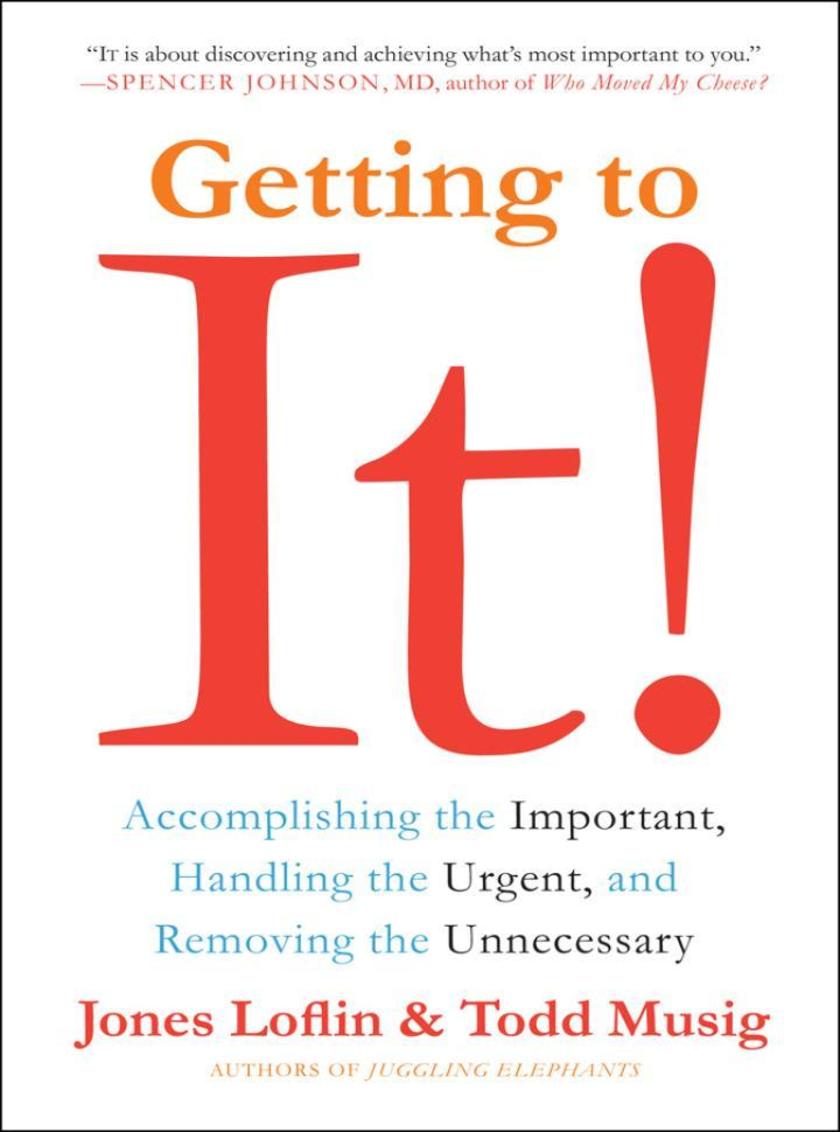
Getting to It
¥145.91
From the authors of Juggling Elephants comes the only guide you need to sort through the many priorities in your life, know what your it (Important Thing) should be, and understand how to get it done.How busy are youIn the daily struggle to get it all done, what are you forgettingIs your mind constantly racing through lists of all the things you could and should be doingDoes your day often feel as though you're treading water in an ocean of rushes and deadlines, trying to keep from drowning while handling the increasing demands of your work and life?Don't give up help is on the way. You just have to find your it. The Important Thing. Define it. Plan it. Focus on it. Get excited about it.Identifying IT isn't just the first step in the process of getting focused and heading in the right direction, it's every step. Getting to It provides the necessary tools to accomplish the important, handle the urgent, and get rid of the unnecessary. Want to enjoy a more fulfilling lifeGet to it.
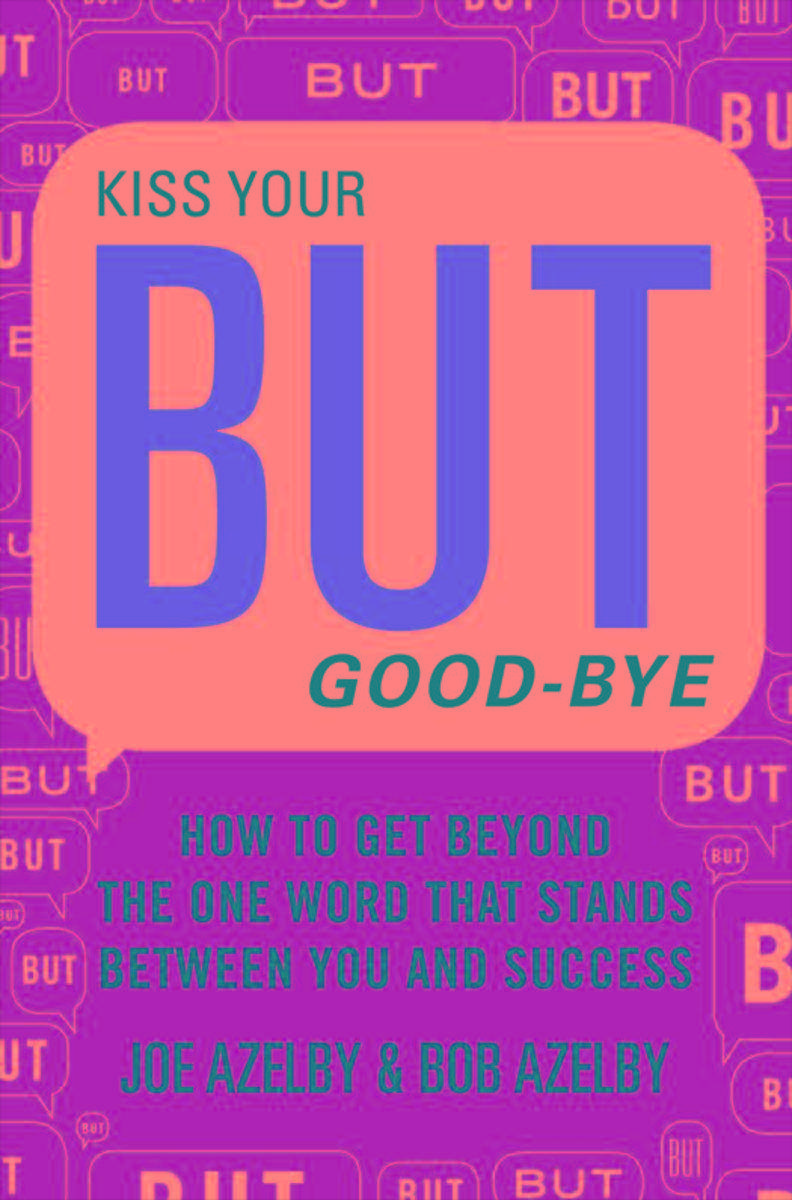
Kiss Your BUT Good-Bye
¥143.95
A simple, engaging, and eminently practical guide to overcoming your weaknesses your "Buts" to achieve the career and personal relationships you want Imagine a workplace where all the employees are aware of the things they do or fail to do that prevent them from being more productive and valuable. Imagine a company where everyone speaks openly and honestly about his or her weaknesses and is committed to strengthening and overcoming them. Imagine an environment where colleagues help one another become more efficient and less disruptive by speaking the truth about what detracts from the team's efforts and objectives. Imagine a place where the firm's most talented employees know exactly what they need to do to attain a leadership position. This is no fantasy workplace: it can be your business if you listen to Joe Azelby and Bob Azelby, brothers and successful executives in their own right.Kiss Your BUT Good-Bye will help all professionals find their individual BUT whether it's a lack of skills, a distracting behavior, or a personality quirk that interferes with achieving success. Using road-tested techniques, Kiss Your BUT Good-Bye helps you examine your BUT, understand it, manage it, cover it, and most important, shrink it. It also enables managers to help their employees discover personal weaknesses and to learn how to deliver the direct, honest feedback every worker needs and deserves.Finding your BUT can be tough medicine, but the Azelbys deliver it with a tasty spoonful of sugar. Get ready for success . . . get ready to Kiss Your BUT Good-Bye.
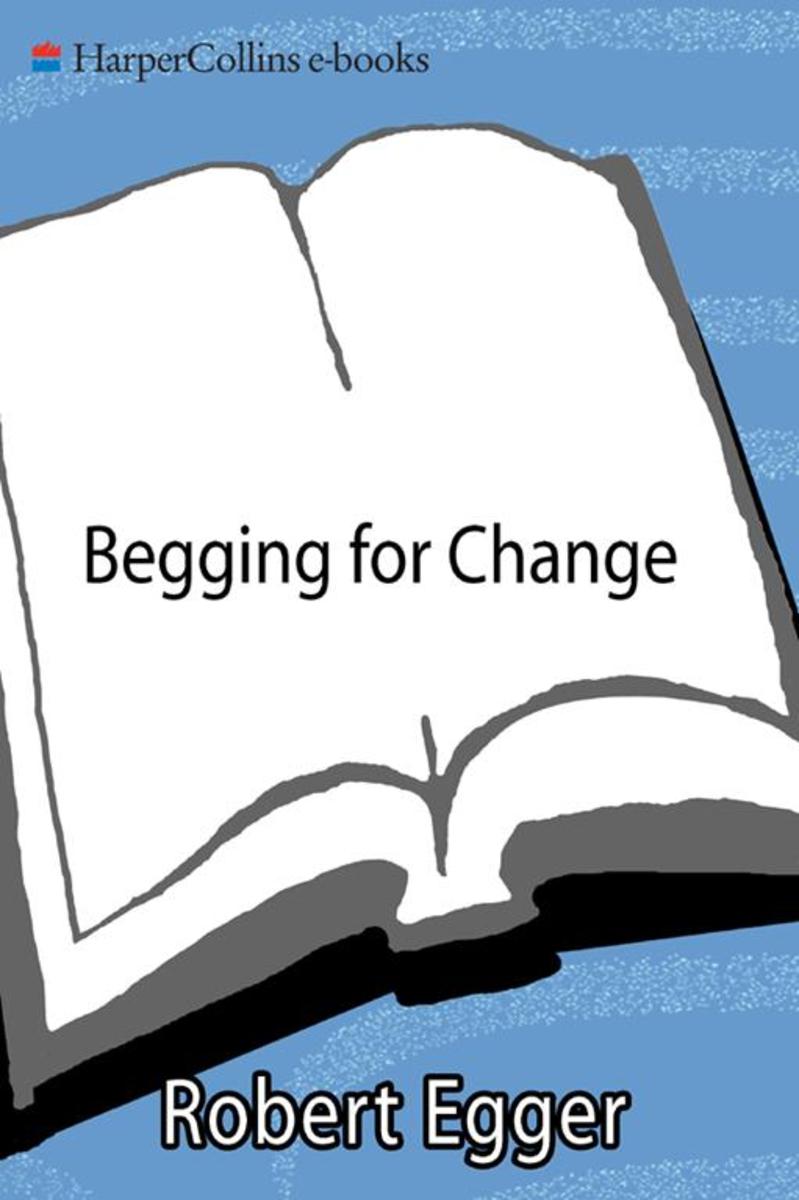
Begging for Change
¥141.80
You are a good person. You are one of the 84 million Americans who volunteer with a charity. You are part of a national donor pool that contributes nearly $200 billion to good causes every year. But you wonder: Why don't your efforts seem to make a differenceFifteen years ago, Robert Egger asked himself this same question as he reluctantly climbed aboard a food service truck for a night of volunteering to help serve meals to the homeless. He wondered why there were still people waiting in line for soup in this day and age. Where were the drug counselors, the job trainers, and the support team to help these men and women get off the streetsWhy were volunteers buying supplies from grocery stores when restaurants were throwing away unused fresh food every nightWhy had politicians, citizens, and local businesses allowed charity to become an end in itselfWhy wasn't there an efficient way to solve the problemRobert knew there had to be a better way. In 1989, he started the D.C. Central Kitchen by collecting unused food from local restaurants, caterers, and hotels and bringing it back to a central location where hot, nutritious meals were prepared and distributed to agencies around the city. Since then, the D.C. Central Kitchen has been named one of President Bush Sr.'s Thousand Points of Light and has become one of the most respected and emulated nonprofit agencies in the world, producing and distributing more than 4,000 meals a day. Its highly successful 12-week job-training program equips former homeless transients and drug addicts with culinary and life skills to gain employment in the restaurant business. In Begging for Change, Robert Egger looks back on his experience and exposes the startling lack of logic, waste, and ineffectiveness he has encountered during his years in the nonprofit sector, and calls for reform of this $800 billion industry from the inside out. In his entertaining and inimitable way, he weaves stories from his days in music, when he encountered legends such as Sarah Vaughan, Mel Torme, and Iggy Pop, together with stories from his experiences in the hunger movement -- and recently as volunteer interim director to help clean up the beleaguered United Way National Capital Area. He asks for nonprofits to be more innovative and results-driven, for corporate and nonprofit leaders to be more focused and responsible, and for citizens who contribute their time and money to be smarter and more demanding of nonprofits and what they provide in return. Robert's appeal to common sense will resonate with readers who are tired of hearing the same nonprofit fund-raising appeals and pity-based messages. Instead of asking the "who" and "what" of giving, he leads the way in asking the "how" and "why" in order to move beyond our 19th-century concept of charity, and usher in a 21st-century model of change and reform for nonprofits. Enlightening and provocative, engaging and moving, this book is essential reading for nonprofit managers, corporate leaders, and, most of all, any citizen who has ever cared enough to give of themselves to a worthy cause.

The Chasm Companion
¥141.57
In The Chasm Companion, The Chasm Group's Paul Wiefels presents readers with a new analysis of the ideas introduced in bestselling author Geoffrey Moore's classic books, Crossing the Chasm and Inside the Tornado, and focuses on how to translate these ideas into actionable strategy and implementation programs. This step-by-step fieldbook is organized around three major concepts: how high-tech markets develop, creating market development strategy, and executing go-to-market programs based on the strategy.

HarperCollins e-books
¥141.57
"It began with a promising cancer drug, the brainchild of a gifted researcher, and grew into an insider trading scandal that ensnared one of America's most successful women. The story of ImClone Systems and its "miracle" cancer drug, Erbitux, is the quintessential business saga of the late 1990s. It's the story of big money and cutting-edgescience, celebrity, greed, and slipshod business practices; the story of biotech hype and hope and every kind of excess.At the center of it all stands a single, enigmatic figure named Sam Waksal. A brilliant, mercurial, and desperate-to-be-liked entrepreneur, Waksal was addicted to the trappings of wealth and fame that accrued to a darling of the stock market and the overheated atmosphere of biotech IPOs. At the height of his stardom, Waksal hobnobbed with Martha Stewart in New York and Carl Icahn in the Hamptons, hosted parties at his fabulous art-filled loft, and was a fixture in the gossip columns. He promised that Erbitux would "change oncology," and would soon be making $1 billion a year.But as Waksal partied late into the night, desperate cancer patients languished, waiting for his drug to come to market. When the FDA withheld approval of Erbitux, the charming scientist who had always stayed just one step ahead of bankruptcy panicked and desperately tried to cash in his stock before the bad news hit Wall Street.Waksal is now in jail, the first of the Enron-era white-collar criminals to be sentenced. Yet his cancer drug has proved more durable than his evanescent profits. Erbitux remains promising, the leading example of a new way to fight cancer, and patients and investors hope it will be available soon.

HarperCollins e-books
¥140.29
Whether it was a Ginsu knife, George Foreman Grill, Tony Robbins' motivational book, kitchen device by Ron Popeil, or any of the countless other famous products that have been marketed on infomercials over the years, admit it: you or someone you know has bought one and you're not alone. Last year, one out of every three Americans picked up the phone and ordered a product from a television infomercial or home shopping network, and in But Wait . . . There's More! journalist (and infomercial addict) Remy Stern offers a lively, behind-the-scenes exploration of this enormous business one that markets the world's most outrageous products using the most outrageous tactics. Don't let the kitschy exterior fool you: behind the laughable demonstrations, goofy grins, and cheesy dialogue lies an industry larger than the film and music industries combined. The first book of its kind, But Wait . . . There's More! exposes the never-before-told story of the infomercial and home shopping phenomenon in all its excessive glory and its meteoric rise to become one of the most profitable businesses in America. Along the way, Stern details the history behind the classic products and introduces readers to some of the most famous (and infamous) pitchmen and personalities in the business, including Tony Robbins, Billy Mays, Ron Popeil, Tony Little, Suzanne Somers, Kevin Trudeau, and Joe Francis. He also presents an in-depth look at the business behind the camera the canny sales strategies, clever psychological tools, and occasionally questionable tactics marketers have used to get us to open up our wallets and spend, spend, spend.Stern's eye-opening account also offers a penetrating look at how late-night television conquered the American consumer and provides insight into modern American culture: our rampant consumerism, our desire for instant riches, and our collective dream of perfect abs, unblemished skin, and gleaming white teeth. Both a compelling business story and a thoroughly entertaining piece of investigative journalism (with a touch of muckraking and social satire), But Wait . . . There's More! will ensure that you never look at those too-good-to-be-true deals the same way again.
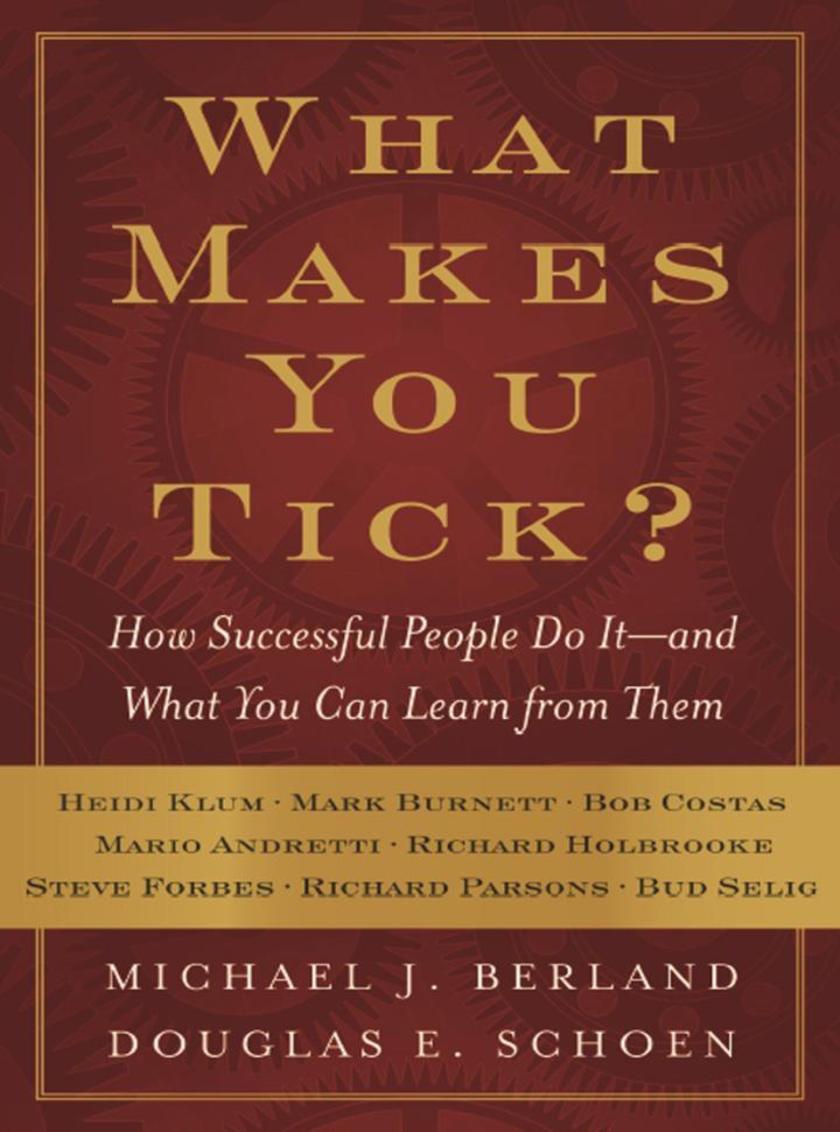
What Makes You Tick?
¥140.29
In the most challenging economy of our lifetime, where should you turn for guidanceTo the stories of those who have made it the leaders who battled adversity, forged their own paths,and succeeded . . . because they knew what made them tick. As people everywhere confront the global economic crisis, "success" may seem elusive at best, impossible at worst. Yet history proves that a new generation of success stories will likely emerge from this era of financial chaos. And this new book prepares you to be one of those success stories by analyzing the inner qualities that have propelled the forward-thinking leaders of our time: drive, determination, and self-awareness.As strategists for the internationally renowned consumer and political research firm Penn, Schoen Berland Associates, Michael Berland and Douglas Schoen are experts in how successful people think . . . and how they win. Now they share what they've learned with firsthand accounts from some of the world's most successful people in nearly every field including the founder of Starwood Resorts; a world-famous chef-restaurateur; the CEO of NBC Universal; a supermodel turned entrepreneur; the head of Este Lauder; the commissioner of the National Hockey League; the president of Hearst Magazines; and the creator of CBS's 60 Minutes. Berland and Schoen have discovered that true success is about more than "winning." True success has an emotional quotient: it's about determining your innate strengths, deciding what you truly want, and striving tirelessly to achieve it. Berland and Schoen describe the five archteypes of success: visionaries, natural-born leaders, do-gooders, independence seekers, and independents who follow their dreams. In this unprecedented collection of stories from some of the most successful people in fashion, sports, entertainment, and business, Schoen and Berland demonstrate that success isn't about changing who you are; rather, it's about figuring out what makes you tick and leveraging that knowledge to your advantage. This book shows through compelling first-person storytelling that the most successful people understand their own natural abilities and how to use their best qualities to create a fulfilling life and then tells you how to do the same.

Risk & Grow Rich
¥140.08
With her skill in selling real estate, her expertise in marketing, and her drive to succeed, Kendra Todd has mapped out an exciting and lucrative future for herself one that included taking the right kind of risks, profiting from them, and sharing her knowledge with others. Todd understands that the one thing that keeps people from making the big, bold moves that can improve their lives is a fear of risk, even more than lack of capital. The willingness to try new and different things, and the ability to keep your head on straight while your heart is pounding, is something that Todd knows well. Without risk, she doesn't have a business. Todd will address how men and women view risk from opposite sides of the galaxy, how anyone can become an entrepreneur, how you can set yourself up for success and what the ten steps are for turning risk into opportunity. With quizzes to test what kind of risk taker you are, and examples of successful risks that paid off, Todd is poised to become the hot voice of investment to her generation.

HarperCollins e-books
¥140.08
All In: Poker Night Lessons for Winning Big at Your Career goes beyond any of the other bestselling poker books on the market and at last tells you how to put your poker playing skills to use in the business world. What if the rules and strategies of poker were the same as those More...you use in your real lifeWhat if your real life were an exciting game filled with challenging opponents and chances to win bigWhat if your job was as much fun as your weekly poker gameWell, it can be - and All in will show you how. With this book you'll learn how to: know the rules and know your opponent; define your playing style and leave your emotions at the door; make the most out of a great hand and minimize your mistakes; know when and how to bluff, and know when you're beat; and always keep them guessing, and know when to go all in! The modern-day world of corporate politics is very similar to poker. It's a game where anticipating your opponent's next move and making educated guesses at the cards they hold in their hand is just as important as knowing how to play your own hand and having a strategy for how you want to be perceived by others. All you have to know are the basic rules of the game to benefit from this book. Its theories and ideas can be applied to all facets of the business world. From the student to the CEO, anyone who is looking for a way to take control of their career and have fun while doing it will benefit from this book.

HarperCollins e-books
¥140.08
Generation Ageless an authoritative and eye-opening look at the past, present, and future of Baby Boomers Think Baby Boomers are all alikeThink again. This dynamic generation is nearing the traditional age of retirement, but is in no mood to slow down. Learn how to market, sell to, do business with, or just understand this remarkable generation, from Yankelovich, Inc., the organization that knows them better than anyone else. Yankelovich actually coined the term "Baby Boomer" back in the late 1960s, when they first started collecting data on this influential generation. Now, more than thirty years later, they have the most complete information on Boomers ever assembled. And they have put it all together in this groundbreaking look at America's largest and most powerful generation. In Generation Ageless, Yankelovich president J. Walker Smith, Ph.D., and senior partner Ann Clurman, Boomers themselves, dig deep into what makes this generation tick. With fresh, original data and a wide-ranging look at everything about Boomers, they dissect Boomers into six major segments Straight Arrows, Due Diligents, Maximizers, Sideliners, Diss/Contenteds, and Re-Activists to provide new insights into the world's most talked-about generation. The results show key imperatives invaluable to anyone selling a product, service, or idea to this 78-million strong group.Boomers are the dominant generation in America. Their values and aspirations set the tone for everyone. Advances in medicine and health mean that this youth-obsessed generation is now focused on an everlasting prime of life. They are literally middle age less: holding onto their position at the top of the pyramid for as long as possible, and not fading away to their golden years. Today's fifty- and sixty-year-old Boomers are not eagerly anticipating lives of disengaged retirement. Instead, middle age less Boomers expect another twenty or thirty years of impact and influence albeit in a variety of ways reflective of a surfeit of agendas and ambitions they have yet to fulfill.
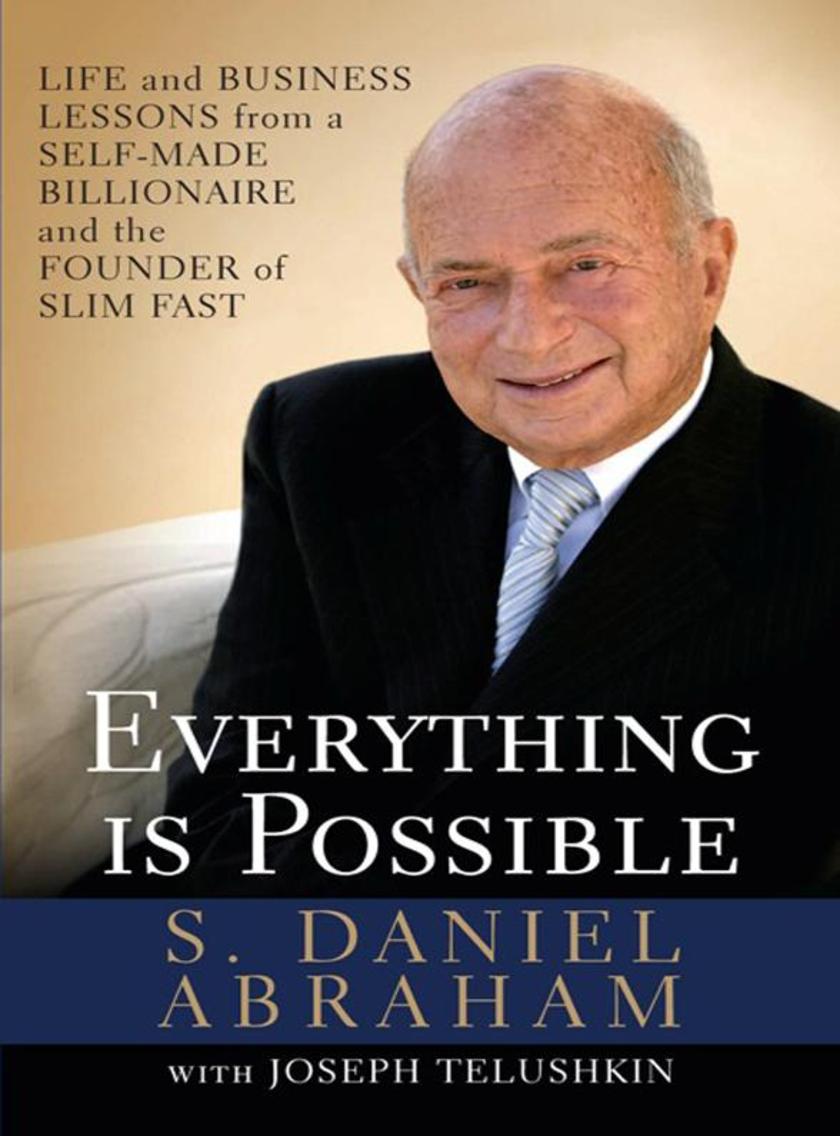
Everything is Possible
¥140.08
In Everything Is Possible, Dan Abraham, the legendary founder of Slim-Fast, recounts the story of his personal and business life, starting from his childhood and army years and his purchase of Thompson Medical for $5,000 when he was in his early twenties, and culminating in the sale of Slim-Fast for $2.3 billion in 2000. At the heart of Everything Is Possible are 16 life lessons that Abraham has picked up in sixty years of a hard-working business career. Among them: ?There is no such thing as a mistake (see pages 198–202) ?Why I always insured that my suppliers made a profit (see pages 208–9) ?The philosophy of continuous improvement (see pages 202–5) ?If you have a theory and the facts dispute it, drop your theory (pages 205–8) ?The realization that we all have both good and bad luck in our lives, but many of us don't prepare for either (pages 216–9) ?I never saw a man pick a fight with a stronger man (pages 191–5) But this memoir, a brilliant guide for anyone starting and growing a business, is about far more than business. Abraham tells the heartwarming story of growing up in a modest home in Long Beach, New York, and the lessons he learned from his mother, father, and one high school teacher that have guided him ever since. And there is more, much more: a discussion of his beliefs about the pleasure of giving; what he has learned from Judaism about ethics and the Golden Rule; and what he learned from his experiences with the FDA about the importance of compromise and about the necessity to fight hard when you believe you're right. At a time, when newspapers are filled with reports of business fraud and deceptions, and when so many people believe that to have spectacular success in business you have to be ruthless and dishonest, this is an account of a business life that has been lived honorably, passionately, and successfully, and with fun. Everything Is Possible is a book to be savored and shared with young and old alike.
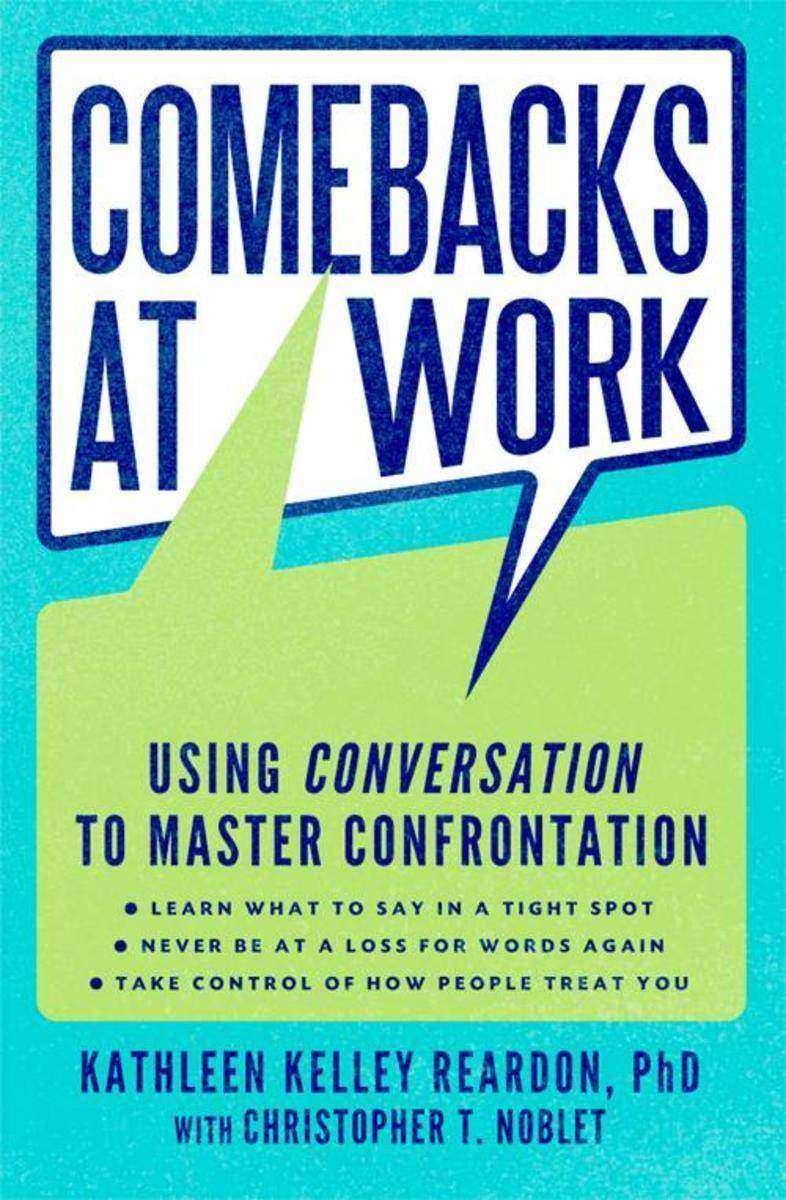
Comebacks at Work
¥138.41
The workplace guide to putting "I wish I'd said" moments in the past Ever wish that you could have a "do over" after a conversation at workDo you often find yourself regretting what you've said to a coworker or kicking yourself for not saying something better, stronger, or more preciseIf so, you're like most people, and in Comebacks at Work, management professor and consultant Kathleen Kelley Reardon, Ph.D., provides the tips and tools you need to know what to say and how to say it better next time.In this compelling, entertaining book, Reardon argues that we are responsible for 75 percent of the way we're treated at work, and our success or failure at the workplace depends largely on how we handle ourselves in conversation with our colleagues. To break free of the stale *s and expected actions that allow politically astute people to manipulate us, we must increase our conversational awareness and effectively employ what Reardon calls "comebacks." Comebacks at Work provides a game plan for doing so and explains: Why some comebacks work, while others fall flat; Why our mind goes blank when we are confronted, and how to overcome that response; How to determine which comebacks work, and when to use them. Every conversation is different, and while many situations are common, one set of comebacks isn't enough. Offering a personalized repertoire of comebacks and a plan for using them strategically as well as the skills you will need to package them for maximum effect, Comebacks at Work will prepare you for any difficult conversation that comes your way.




 购物车
购物车 个人中心
个人中心



